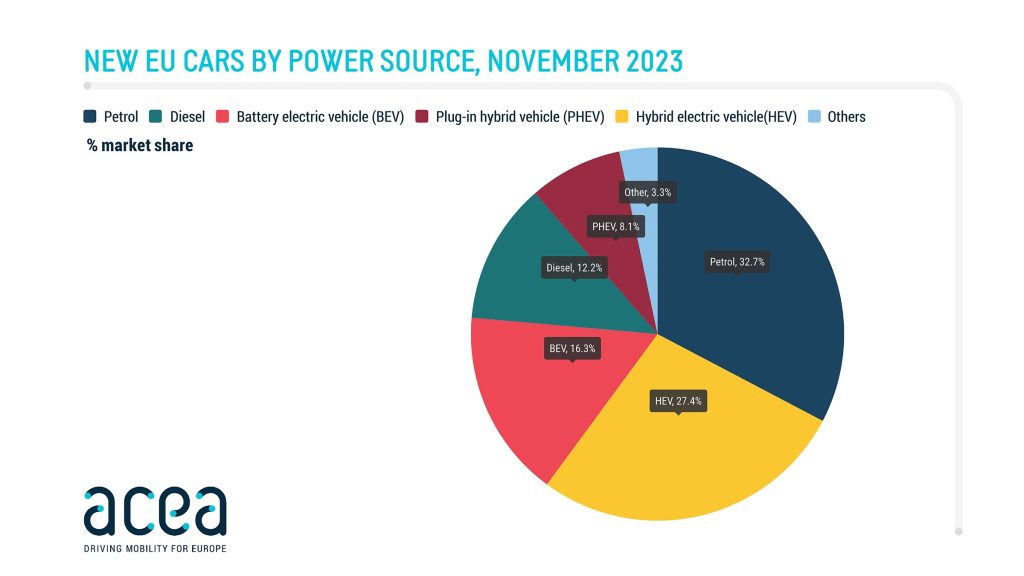
New data shows electric cars and plug-in hybrids made up more than 24% of all new passenger car registrations in the European Union this year, rising a bit from last year. While gas vehicles still hold nearly a third of the market, diesel rates took a dive.
Tallying up all battery electric, plug-in hybrid, and full hybrids make up 47.6% of all new passenger car registrations in the EU from January through November, according to the European Automobile Manufacturers Association (ACEA) said. That’s up from 43% in the same period last year.
In November, the battery-electric car market share increased to 16.3%, a slim rise from 15% last year. The year-to-date share now holds steady at 14.2%, consistently surpassing diesel, which remained at 13.7%, the report showed.

New car registrations have been on the rise in the EU for 16 straight months, with a year-on-year rise of 13.3% in the registration of electric vehicles and hybrids. However, European consumers are favoring hybrid-electric vehicles, with a year-on-year rise of 28.7%. Meanwhile, plug-in hybrid electric cars, however, dropped 22.1% to 72,002 units last month.
Petrol car registrations are still increasing by 4.2%, while diesel dropped by 10.3%. Countries seeing the largest decline were France, Spain, Italy, and Germany, with diesel cars representing 12.2% of market share, down from 14.5% in the same month last year.
Electrek’s Take
The percentages have only marginally improved from last year on new car registrations of electric vehicles – a little more than 1% on BEVs. But still, it’s nice to see diesel die out. Diesel cars held 50% of the market share in Europe in 2015, compared to 12.2% now. Obviously, electric cars are critical to the European Union meeting its climate goals, so we can only imagine these numbers are going to shift a lot more in the coming years. For 2025, the EU is tightening its restrictions with a 15% reduction in CO2 emissions by 2025 for both cars and vans. From 2030, cars will see a 55% reduction in emissions (relative to a 2021 baseline), and vans will see a 50% reduction. By 2035, all new cars and vans registered in Europe will be zero-emission.
FTC: We use income earning auto affiliate links. More.

